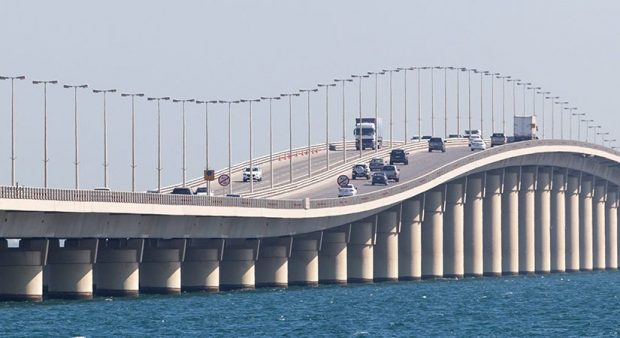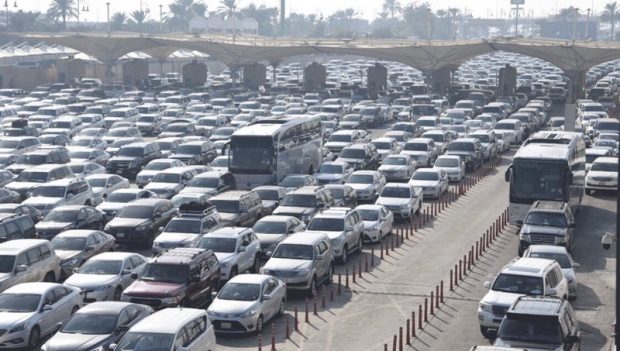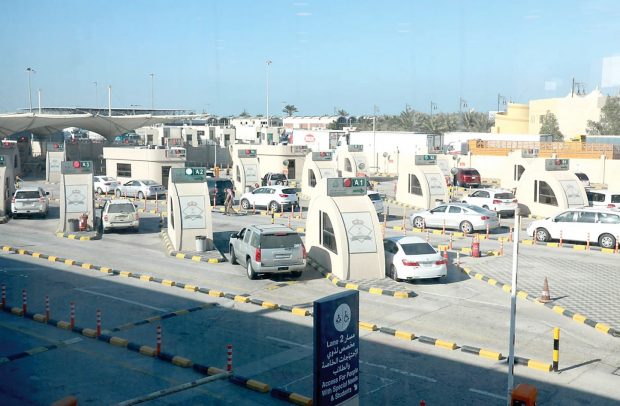
Bahrain, Saudi Arabia causeway marks 33 years of operations

By Habib Toumi
Manama: King Fahad Causeway, a series of bridges and causeways that link the island of Bahrain and Saudi mainland, today marks 33 years.
The causeway, Bahrain’s only terrestrial link with another country, is named after former king of Saudi Arabia Fahad bin Abdul Aziz Al Saud who ruled from June 1982 until August 2005.
Work on the 25-kilometre causeway was launched in 1981 following studies about numerous geographic and technical details, environmental factors and maritime currents.
It was opened to the public on November 26, 1986 during a grand ceremony attended by the then rulers of Bahrain and Saudi Arabia.
Cars, buses and trucks have been steadily using the link to go in both directions, boosting its significance to millions of people and the two countries. In January this year, officials said that around 382 million people used the causeway since it was opened.
Several Saudi Arabia-based Saudi nationals and foreigners who work or study in Bahrain commute daily while a large number of Bahrain-based expatriates and Bahrainis use the causeway daily to go to their work or universities.
Strong family links between Gulf citizens are a significant factor in the exchange of visits over the causeway.
Movie theatres screening the latest movies and shopping complexes are also among the top reasons for trips by Saudi families or Saudi Arabia-based foreigners to Manama.

As the causeway became one of the busiest links in the Arab world, drastic changes were introduced to ensure the smooth flow of traffic.
Plans to build a second causeway, King Hamad Causeway, named after the king of Bahrain, are progressing.
The new causeway, to be funded by the private sector, would be used by passenger trains and freight trains besides vehicles.
The railway lines will be part of the wider 2,170-km Gulf Cooperation Council (GCC) railway network.
The GCC, established in 1981, comprises Bahrain, Kuwait, Oman, Qatar, Saudi Arabia and the United Arab Emirates.
The business community in Bahrain has welcomed the project as a much-needed boost for the local and Gulf economies.

Several business people said that it would boost trade and commercial exchanges between the two kingdoms and other countries in the region and beyond.
“The railway movement of products has become an urgent necessity, particularly as the region witnesses fast developing rates of commercial activities, urbanism and demography,” they said.
“It will also greatly help with economic integration in several areas. The Bahraini market, much smaller than the Saudis, will benefit greatly while Saudi Arabia will benefit from the knowhow of Bahrainis who can commute every day between the two countries.”


